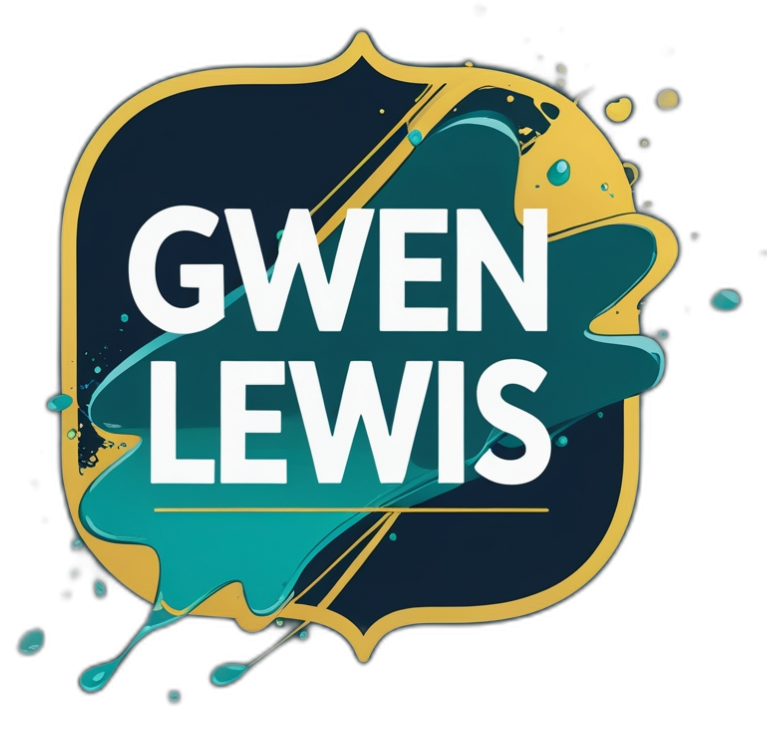
About Gwen
A Therapist with a Creative Soul

A conversation with Gwen: where compassion meets creativity
by various colleagues of Gwen
Q: Gwennie, how would you describe what you do?
A: At my core, I’m someone who helps people feel seen, supported, and empowered to navigate life’s toughest moments. I’m a qualified integrative counsellor and creative soul with a real passion for holding space — especially for those who often feel like they don’t belong. Whether through therapy, art, writing, or education, everything I do is about guiding others towards healing and self-understanding, without judgement.
Q: What does “integrative” therapy mean in your work?
A: For me, it means adapting therapy to the person in front of me — not the other way around. I draw from a range of approaches like Person-Centred Therapy, CBT, Psychodynamic work, and trauma-informed practice. My work is grounded in empathy and curiosity, and I often weave in creative methods too, especially when words aren’t enough. I work a lot with neurodiverse clients, and I always tailor my approach to how each person best connects, communicates, and heals.
Q: What kind of clients do you work with?
A: The people I work with come from all sorts of backgrounds—some are navigating everyday life challenges, while others are in the public eye or high-pressure roles, needing a safe space away from it all. I’ve supported creatives, professionals, and musicians, actors and the man next door! Pretty much anyone who feels a bit lost or overwhelmed and want to make sense of what’s going on inside.
I have a vast mixture of clients; young people or adults trying, all trying to understand themselves more deeply—whether they’re carrying unresolved trauma, managing complex relationships, feeling burnt out, or exploring how neurodivergence shows up in their world.
What they all have in common is the need to be seen, heard and understood—without judgement or pressure to perform. That’s what I offer. Just a space where you can exhale, bring all the messy bits, and know that you don’t have to do any of it alone.
Q: You're also training as a supervisor and family mediator. Why those next steps?
A: Because supporting people who support others is so close to my heart. I’ve naturally taken on that role in peer groups, in community work, and even with trainees placed in my practice. I’ve seen how powerful it is when therapists, especially therapists of colour or neurodivergent counsellors, feel held and validated. As for mediation — I believe in helping families find calmer ways through conflict. We all deserve to be heard, especially in tough conversations.
Q: You’re also an artist and a writer. How do those creative parts of you show up in your work?
A: Creativity is everywhere in my life. It’s how I decompress, express, and connect. I paint, do resin work, photography, and write — from empowering children’s books to mini novels for adults, and therapeutic journals that help people reflect and heal in their own time. I often share creative resources in my therapy and community work too. I believe creative expression allows people to process things beyond language — especially where trauma or neurodivergence make traditional talk therapy harder.
Q: What values guide the way you work?
A: Compassion. Inclusion. Curiosity. Empowerment. And honesty. I want people to feel that they can be their whole selves with me — messy, uncertain, joyful, grieving — whatever that looks like. I’m not here to fix people. I walk beside them while they find their own answers. That’s the heart of it.
Q: What message would you want to leave someone visiting your site for the first time?
A: Just that you’re welcome here. Whether you’re looking for therapy, exploring your own healing through creativity, or simply curious about what support could look like — this is a space built for you. Wherever you’re at, you don’t have to walk the journey alone. And healing doesn’t have to look like struggle. Sometimes it’s messy. Sometimes it’s beautiful. But you get to do it your way — and I’d be honoured to walk with you.



